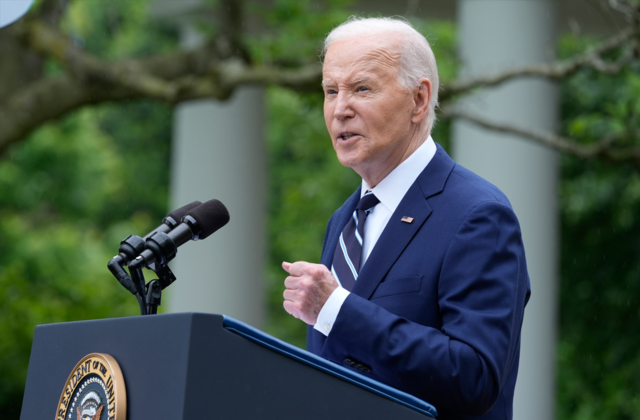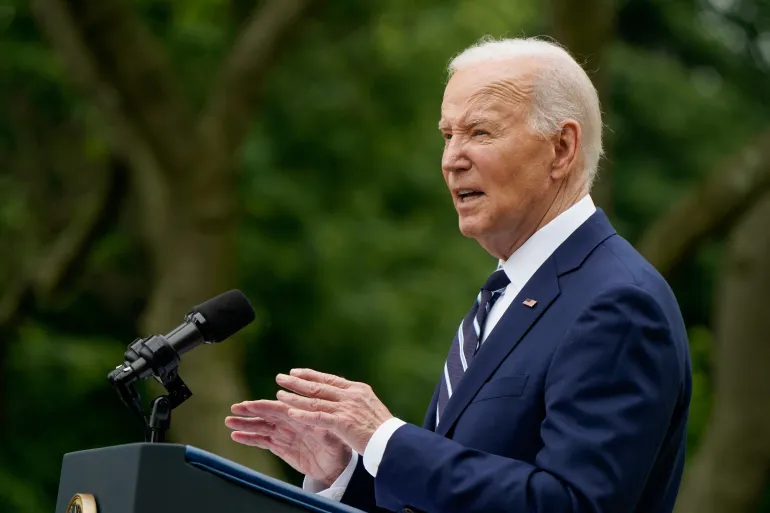Biden’s Strategic Move: New Tariffs on Chinese Imports
In a significant escalation of trade tensions. President Biden’s New Tariffs is announced by the imposition of new tariffs on a range of Chinese imports. This move, part of a broader strategy to address unfair trade practices and protect American industries. Marks a pivotal moment in U.S.-China relations. The decision reflects a continuation of the tough stance on China. Which is aiming to level the playing field and respond to longstanding issues such as intellectual property theft and forced technology transfers. The new tariffs are not just economic tools but also political signals. Reinforcing the Biden administration’s commitment to assertive trade policies that prioritize national interests.
The imposition of these tariffs comes after extensive consultations with trade experts, economists, and industry stakeholders. The targeted goods include sectors where the U.S. seeks to reduce dependency on Chinese imports and bolster domestic production capabilities. By focusing on these strategic sectors, the Biden administration aims to stimulate investment and job creation in key industries. Hoping to foster a more resilient and self-reliant economy. However, this approach carries risks, including potential retaliatory measures by China and increased costs for American manufacturers and consumers.
Impact on Global Trade and Industry
The new set of tariffs imposed by the Biden administration is set to disrupt global trade dynamics significantly. Industries reliant on Chinese imports will face increased operational costs, which could lead to higher prices for consumers. Biden’s New Tariffs. Companies may need to reevaluate their supply chains, potentially looking for alternative sources to mitigate the impact of the tariffs. This shift could benefit some sectors within the U.S. and other countries not subject to these tariffs. But the overall effect on global trade networks could be destabilizing.
Furthermore, the tariffs could strain relationships with other trading partners. As global supply chains are interconnected and changes in one part of the system can have cascading effects worldwide. For example, companies in Europe or Southeast Asia that use components made in China might find their costs rising or their supplies disrupted. The global nature of manufacturing and trade means that while the tariffs are aimed at China, their impact will be felt across international borders. Potentially leading to broader economic shifts and diplomatic negotiations as countries adjust to the new trade landscape.
Reactions from China and the International Community
China’s response to the new tariffs has been swift, with official statements expressing strong opposition and promises of reciprocal actions. The Chinese government has historically responded to U.S. tariffs with its own measures. Targeting industries that are critical to the American economy. This tit-for-tat escalation could lead to a deeper trade conflict, affecting sectors ranging from agriculture to high-tech, and potentially leading to a full-scale trade war if compromises are not reached.
Internationally, the reaction has been mixed. While some countries may see opportunities to fill gaps left by Chinese products in the American market. Others are concerned about the broader implications of heightened U.S.-China tensions on global economic stability. International economic organizations and trade alliances are likely to call for negotiations and seek to mediate. As prolonged trade disputes between the world’s two largest economies could lead to global economic downturns. The international community’s role will be crucial in fostering dialogue and proposing frameworks for resolution.
Long-term Economic and Political Consequences
The long-term consequences of President Biden’s decision to impose new tariffs on Chinese imports will unfold over the coming years. Potentially redefining U.S.-China economic relations and the strategic economic landscape globally. Domestically, while the tariffs aim to protect American jobs and industries, they may also lead to higher prices for consumers and challenges for businesses that depend on Chinese imports. Politically, the move solidifies a more confrontational U.S. stance towards China. Which could define the broader foreign policy approach of the Biden administration.
Economically, if the tariffs lead to a prolonged trade war, the consequences could be severe for global markets. Investors might face increased uncertainty, and global economic growth could slow as trading conditions tighten and costs increase. Strategically, this could push China to strengthen trade relations with other nations. Such as those involved in the Belt and Road Initiative, diminishing U.S. economic influence in some markets. The outcome of this policy will depend heavily on diplomatic negotiations and the ability of the world’s two largest economies to navigate this complex and high-stakes conflict.
The Impact on American Industries and Consumers
The recent imposition of tariffs by President Biden on Chinese imports represents a strategic maneuver within the broader context of U.S. economic policy and geopolitical strategy. These tariffs, while primarily aimed at addressing issues such as trade imbalances and the protection of intellectual property. Will invariably have a ripple effect across various sectors of the American economy. Industries that rely heavily on imported goods for their production processes may face increased costs, which could lead to higher prices for American consumers. This shift could strain household budgets and alter consumer behavior. Potentially leading to a slowdown in consumer spending, a critical component of the U.S. economy.
Moreover, the response of American businesses to these tariffs will be instrumental in shaping the overall impact of this policy. Companies might accelerate efforts to diversify their supply chains, reduce dependency on Chinese imports, or increase domestic production capabilities.
Biden’s New Tariffs
While these shifts could foster long-term benefits such as enhanced industry resilience and job creation in some sectors. The transition could be fraught with challenges, including initial capital outlays and potential disruptions in production. The strategic decisions made by U.S. businesses in response to these tariffs will play a crucial role in determining the policy’s success. Balancing the immediate costs against potential long-term gains for the American economy.

China’s Countermeasures and the Global Supply Chain Reaction
In retaliation to the U.S. tariffs, China is likely to implement its own set of countermeasures, which could include tariffs on American goods or other trade barriers. Such retaliatory actions could exacerbate the trade war, leading to a tit-for-tat escalation that might disrupt global supply chains further. Chinese tariffs on U.S. goods could particularly affect industries such as agriculture, automotive, and technology, which are heavily reliant on Chinese markets for exports. The potential tightening of China’s market access for U.S. businesses could lead to significant revenue losses, impacting stock prices and investment plans.
Furthermore, the global supply chain could experience significant shifts as companies worldwide adjust to the new trade dynamics. Nations that are intricately linked economically with the U.S. and China may find themselves caught in the crossfire, needing to navigate a complex landscape of trade alliances and economic policies. This scenario could lead to a reevaluation of global trade partnerships, with some countries seeking to reduce their reliance on the U.S. and China by forging new trade agreements with other nations. The overall stability and efficiency of the global supply chain are at stake, with potential implications for international trade flows and global economic growth. Biden’s New Tariffs.
Future Trade Relations and Economic Diplomacy ON Biden’s New Tariffs
Looking ahead, the evolution of U.S.-China trade relations will be critical in shaping the global economic landscape. The Biden administration’s tariff policy could either lead to a prolonged trade standoff or open avenues for negotiations leading to a more balanced trade relationship. The key to this will be diplomatic engagement and the ability to leverage international economic forums for dialogue and conflict resolution. Strategic economic diplomacy will be required to address the underlying issues prompting the tariffs, such as intellectual property rights and fair trade practices.
In this context, multilateral institutions and trade agreements could play pivotal roles in mediating the trade tensions between the U.S. and China. Effective diplomacy could facilitate a mutual understanding and pave the way for a comprehensive trade deal.Biden’s New Tariffs. That addresses the core issues of concern for both nations.
Such outcomes could stabilize global markets, reassure investors, and promote a more cooperative international trade environment. As the situation unfolds, the global community will be closely watching how the U.S. and China navigate these complex trade and economic challenges, with the hope that both countries will find a pathway that leads to sustainable and equitable economic growth.
Inspired by France24News Rear More Articles Here, Read Previous Blog Here.
